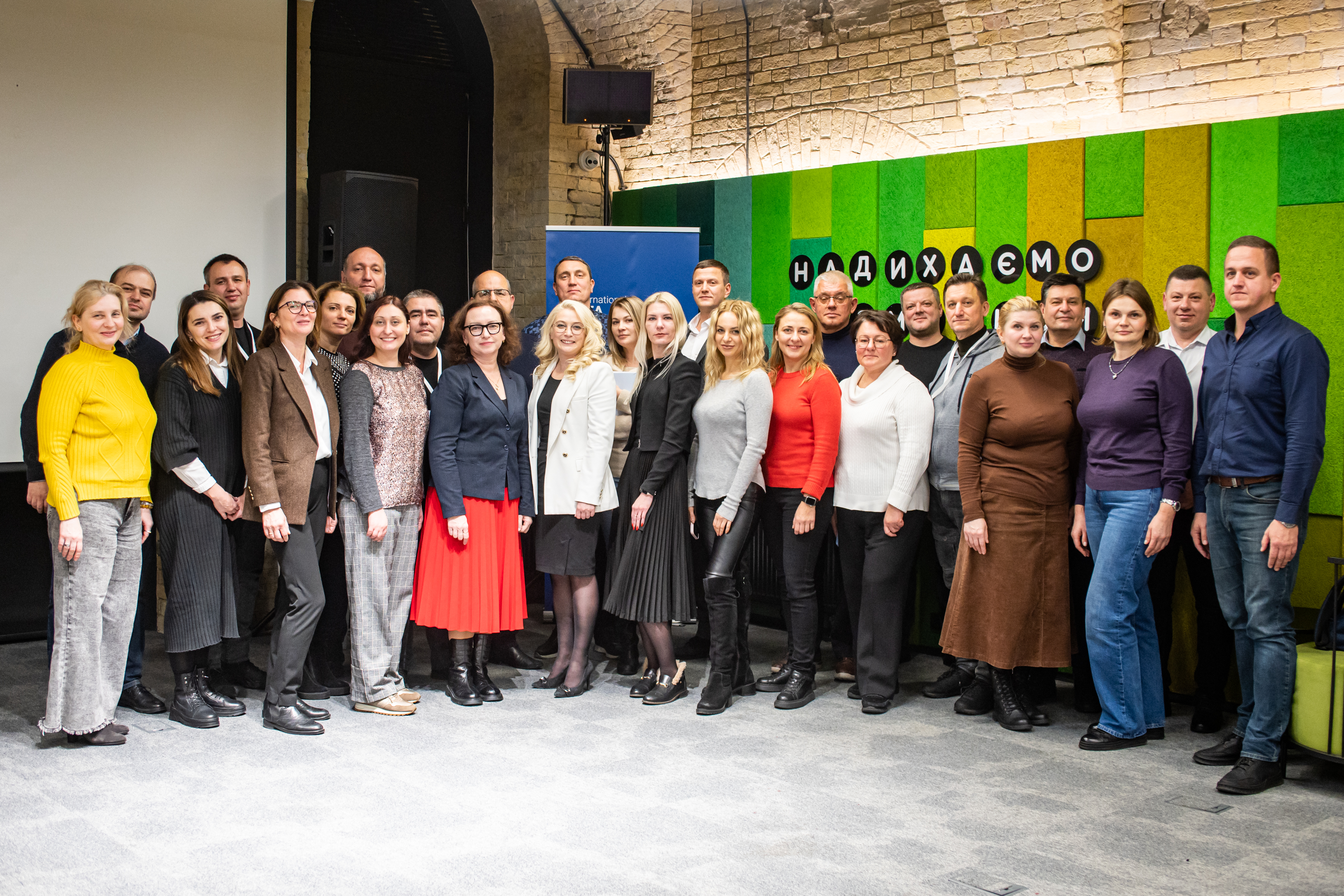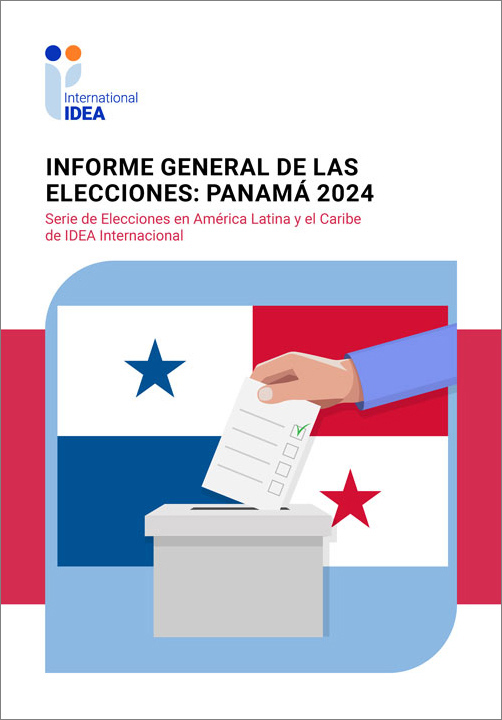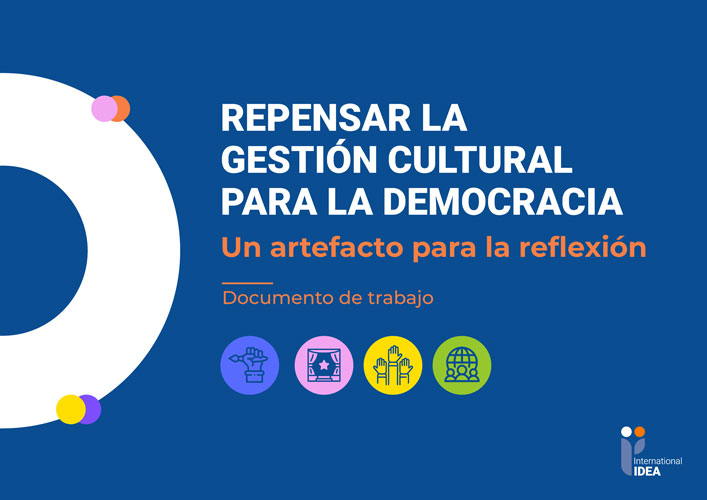An opening product of the Andean–US Dialogue Forum, this report is intended to spur conversations on more effective cooperation by identifying convergences and divergences in priorities among the countries and the citizens of Venezuela, Colombia, Ecuador, Peru, and Bolivia and the United States.
Search
Region
Country
Type
This publication’s richness lies in its having been prepared with the participation of civic leaders, public officials and managers of social programs in the Huancavelica region in Peru, in an individual and collective effort to improve these programs and ensure that they meet their goals.
Journalists and media outlets always operate in a given social, political and economic context that affects their interpretation of reality and the filters used to select what is ‘important’ and how it is presented to the public.
In the Latin American case, that context still presents various challenges when it comes to placing gender equality at the centre of the public debate and the behaviour, attitudes and perceptions of the citizens and all the actors.
The nature of democracy building support has changed radically in the last 10 years. At the same time, the third wave of democratization has led to an explosion of experience, knowledge, successes and failures across the Global South.
Entre mayo y junio de 2008, el Instituto Internacional para la Democracia y la Asistencia Electoral (International IDEA) organizo un seminario en el que se trato de recuperar para la agenda política peruana algunas de las principales líneas de pensamiento que han alimentado y avivado la política del país durante el siglo XX: el pensamiento social cristiano, los socialismos, los nacionalismos, el pensamiento de Haya de la Torre, el pensamiento de Fernando Belaunde Terry, perspectivas d
As the impact of media on democratic institutions grows increasingly influential, it is important to develop a comparative analysis of this complex and sensitive relationship.
This study rests on the belief that one of the most relevant issues when analysing democratization processes in Latin American countries is the role of the media, and their influence on political representation (the right to participate) and public debate (the right to oppose).
En el año 2009 se conmemoraron tres décadas del proceso de democratización más extenso y profundo en la historia de América Latina. Los avances más notorios se constatan en materia de procesos electorales libres y justos, así como en la vigencia y respeto de los derechos humanos.
Con la vigencia de la nueva Constitución boliviana se abrió un período de la vida del país pletórico de interrogantes, dudas y hasta temores. Seguramente los múltiples conflictos políticos y regionales de los años 2007 y 2008, que pusieron a Bolivia al borde de la guerra civil o de confrontaciones mayores, contribuyeron a que las naturales dudas que acompañan a toda reforma constitucional se convirtieran en temores.
A escala mundial, las mujeres representan cincuenta por ciento de la población. Sin embargo, en la esfera política, la presencia de líderes políticas, dirigentes partidarias, candidatas y funcionarias electas no alcanza la misma proporción.
The need to improve access to justice for citizens, especially at the local level, is one of the key findings of the fourth Philippines Democracy Assessment.
Other barriers to access justice for ordinary citizens are the high cost and the lengthy delays for cases to go through the court process. The lack of information about the judicial system and how it works is also an impediment to access to justice.
Worldwide, women represent 50 per cent of the population. However, in the political sphere, the presence of women political leaders, party leaders, candidates and elected representatives is not proportional to this percentage.
The Women and Constitution-Building Initiative in Nepal was initiated in June 2008 in the spirit of a newly formed Constitution Assembly which saw the election of a high percentage of women.
This Discussion Paper is directed at the non-specialist member of the public who has the opportunity to comment on a draft constitution proposed for adoption in their country.
It assumes that it is probably worthwhile to take the trouble to respond and it suggests why and how you as a citizen might respond. It will be especially useful to previously marginalized sections of society and their members, with special emphasis on women.
|
|
El día sábado 7 de febrero de 2009 entró en vigencia la nueva Constitución boliviana.
The past decade has witnessed several electoral successes for Islamist movements in the Arab world, an issue which has stimulated a broad political and academic debate around how democracy can and will develop in the region.
Entre mayo y junio de 2008, el Instituto Internacional para la Democracia y la Asistencia Electoral (International IDEA) organizo un seminario en el que se trato de recuperar para la agenda política peruana algunas de las principales líneas de pensamiento que han alimentado y avivado la política del país durante el siglo XX: el pensamiento social cristiano, los socialismos, los nacionalismos, el pensamiento de Haya de la Torre, el pensamiento de Fernando Belaunde Terry, perspectivas d
Entre mayo y junio de 2008, el Instituto Internacional para la Democracia y la Asistencia Electoral (International IDEA) organizo un seminario en el que se trato de recuperar para la agenda política peruana algunas de las principales líneas de pensamiento que han alimentado y avivado la política del país durante el siglo XX: el pensamiento social cristiano, los socialismos, los nacionalismos, el pensamiento de Haya de la Torre, el pensamiento de Fernando Belaunde Terry, perspectivas d
Entre mayo y junio de 2008, el Instituto Internacional para la Democracia y la Asistencia Electoral (International IDEA) organizo un seminario en el que se trato de recuperar para la agenda política peruana algunas de las principales líneas de pensamiento que han alimentado y avivado la política del país durante el siglo XX: el pensamiento social cristiano, los socialismos, los nacionalismos, el pensamiento de Haya de la Torre, el pensamiento de Fernando Belaunde Terry, perspectivas d
Can presidential structures provide stability and efficient administration? There is increasing evidence—in particular as a result of the third wave of democratization—that presidential systems are as resistant to political crises or economic impacts as parliamentary systems.


